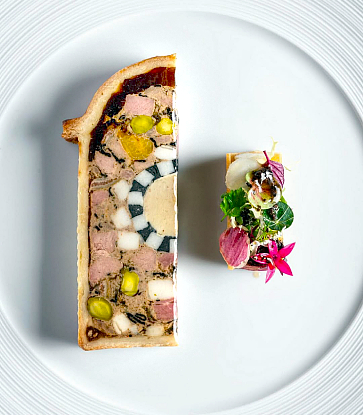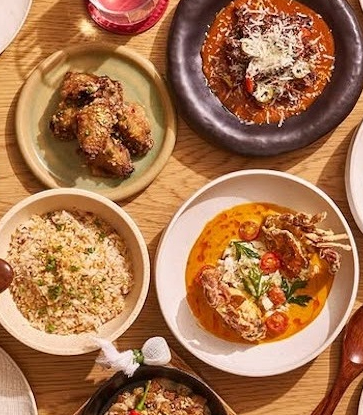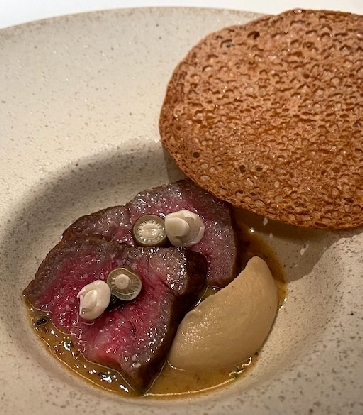Come next month, Leung is opening Cantonese restaurant Forbidden Duck here. Also opening at the same time is one Michelin-starred restaurant, Qi, which is owned by Hong Kong F&B company, the Liberty Group. Both restaurants will be located next to each other in a 6,000-square-foot unit in Marina Bay Financial Centre that was vacated by Crystal Jade Prestige Restaurant.
Forbidden Duck, which opened in Times Square in Hong Kong’s Causeway Bay district last November, is famed for serving roast ducks in two styles—Peking and slow-cooked.
In an exclusive interview with MICHELIN Guide Digital, Leung says that Forbidden Duck is an homage to his love for Peking duck. He says: “Peking duck can be found all over the world. I had it a lot when I was growing up in Canada and I have studied how the duck is made in the U.K. and in Beijing, too.”
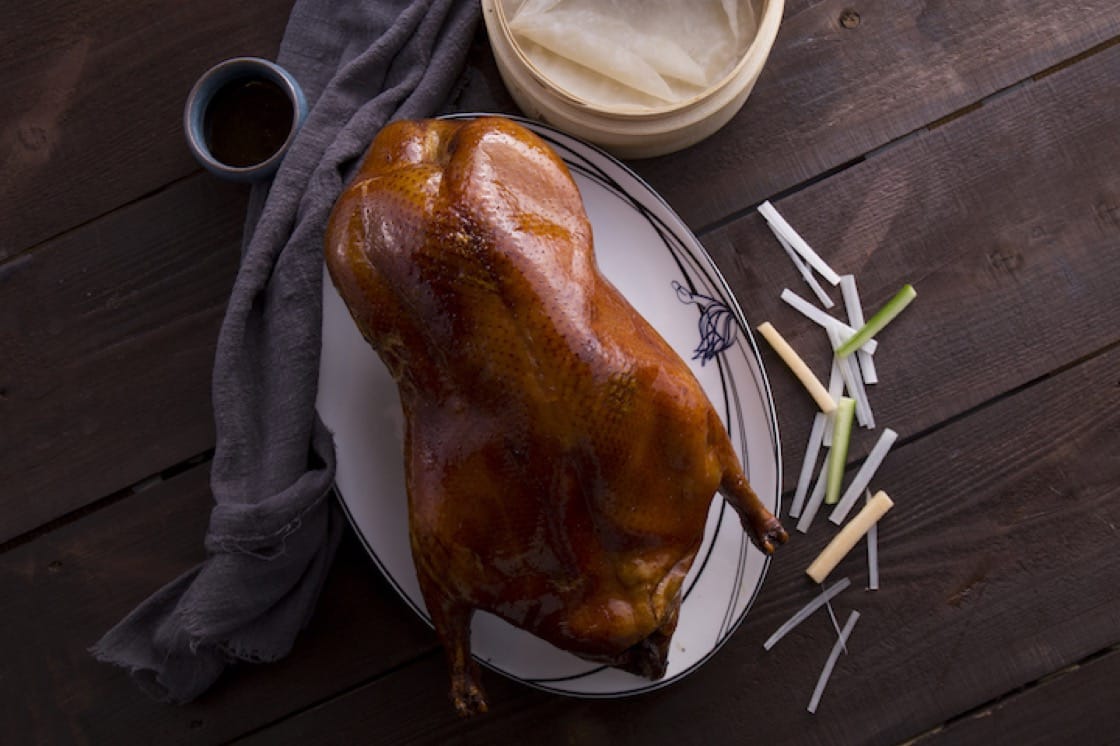
With slow-cooking, the duck turns out “nicely-cooked and pink”. First, the duck is cooked at a low temperature in an oven for three hours to yield a pink supple meat, then the temperature is cranked up for 30 minutes to crisp the skin up.

Unlike Peking duck, which is typically thinly sliced, slow-roasted duck is chopped into thick and chunky cuts.
Leung explains: “Peking duck is originally royalty food, in which mostly the skin is eaten and is too wasteful. The duck should be sliced thickly as by the time you add in the sauce and condiments, the meat disappears and you are eating a sandwich instead".
Accompanying the duck are butterfly-shaped steamed buns that are flavoured with orange juice and fresh orange peel, and condiments include hoi sin sauce, sesame oil, garlic and orange marmalade.
With a longer cooking process, only a limited number of slow-roasted ducks will be made available daily.

Leung adds that he will add a couple of dishes that are inspired by Singapore cuisine to the menu. “One thing is for sure—there will be my version of chilli crab”, he says confidently.
The enfant terrible of Hong Kong’s culinary scene, who spotted blue-tinted spectacles and streaks of bright-coloured hair at this interview, quips: “Expect Cantonese dishes with a slight demon chef twist”. However, there will be “nothing with flames or nitrogen in my dishes. He says: “I am past that stage now; I do not need to use these to impress diners”.
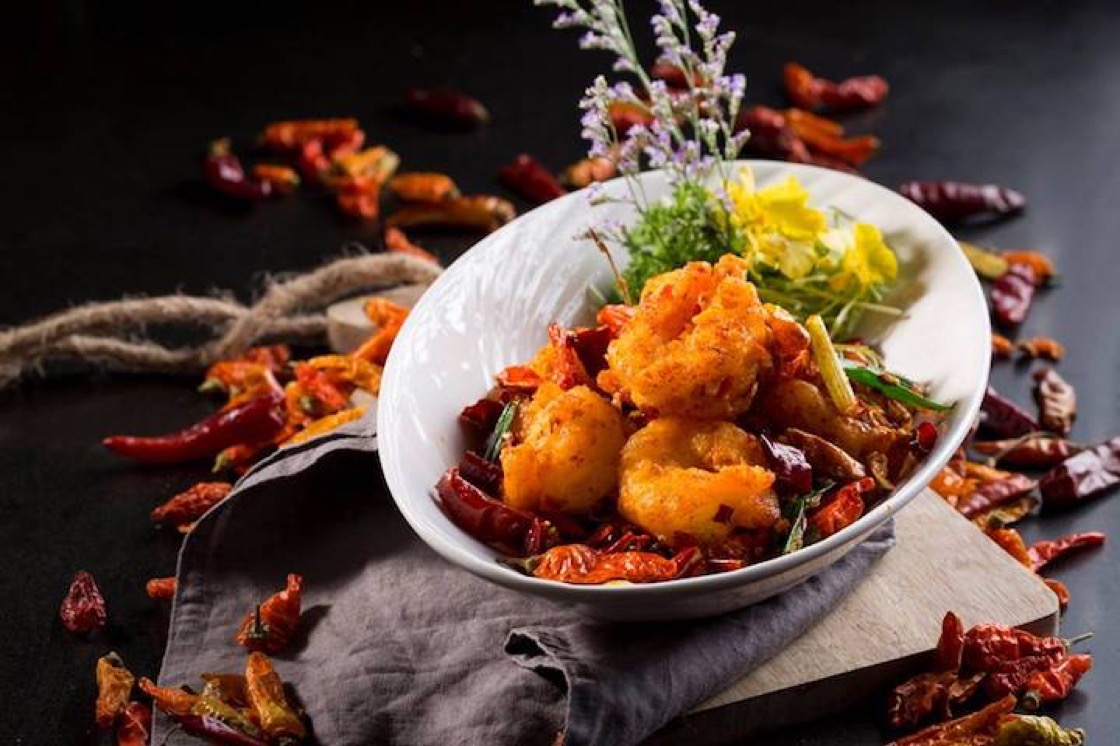
For contemporary Sichuan restaurant Qi’s first overseas outpost, the entire menu will be transplanted here. There are two Qi restaurants in Hong Kong—Qi House of Sichuan in Wan Chai, which garnered a Michelin star last year, and Qi Nine Dragons in Tsim Sha Tsui.
Signature dishes include spicy prawns, dan dan noodles, smoky hot tofu with chestnuts and cumin lamb with roasted chilli. There will also be new dishes with Singapore influences.
On bringing Forbidden Duck to Singapore, one key reason, Leung says, is that he enjoys visiting the Republic regularly. “It is one of my favourite cities in Southeast Asia, as it has a diverse dining scene with a good mix of East and West cuisines. The scene is maturing with diners appreciating more unique concepts”.
Another reason, he adds, is that he is a recognised name here. He says: “People in Singapore like and appreciate what I do. They have an international palate and enjoy art of cuisine. If there’s a market, I am here.”
Leung will team up with executive Chinese chef Liu Ching Hai of the one Michelin-starred Summer Palace in Regent Singapore for a four-hands dinner on April 6 to 8.

Agreeing quickly, he says: “When a city has a MICHELIN guide, there must be people who can appreciate the cuisine there. I do not see other Michelin-starred restaurants as competition. Nobody travels all the way to a city to eat at one restaurant, but they want to eat at the family of Michelin-starred restaurants”.
Can Singapore expect a Bo Innovation
restaurant, which serves Leung’s self-styled ‘X-treme Chinese cuisine’ in the near future?
Leung says: “There is always the possibility of bringing Bo Innovation to Singapore. It will be purely inspired by the cuisine and culture of the city. Singapore is a place with a good dining culture and where I enjoy spending time. Expect to see a lot of me here”.



